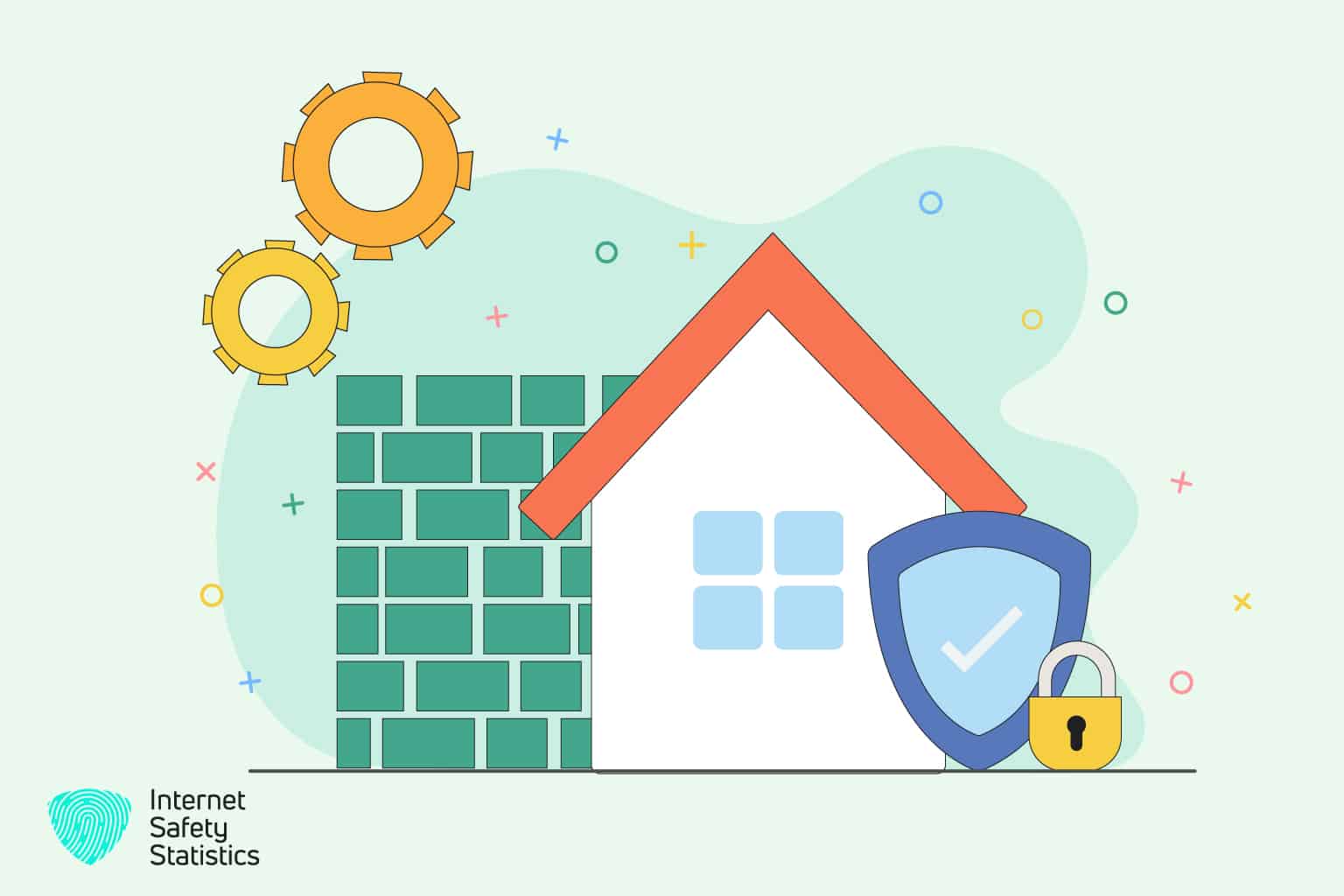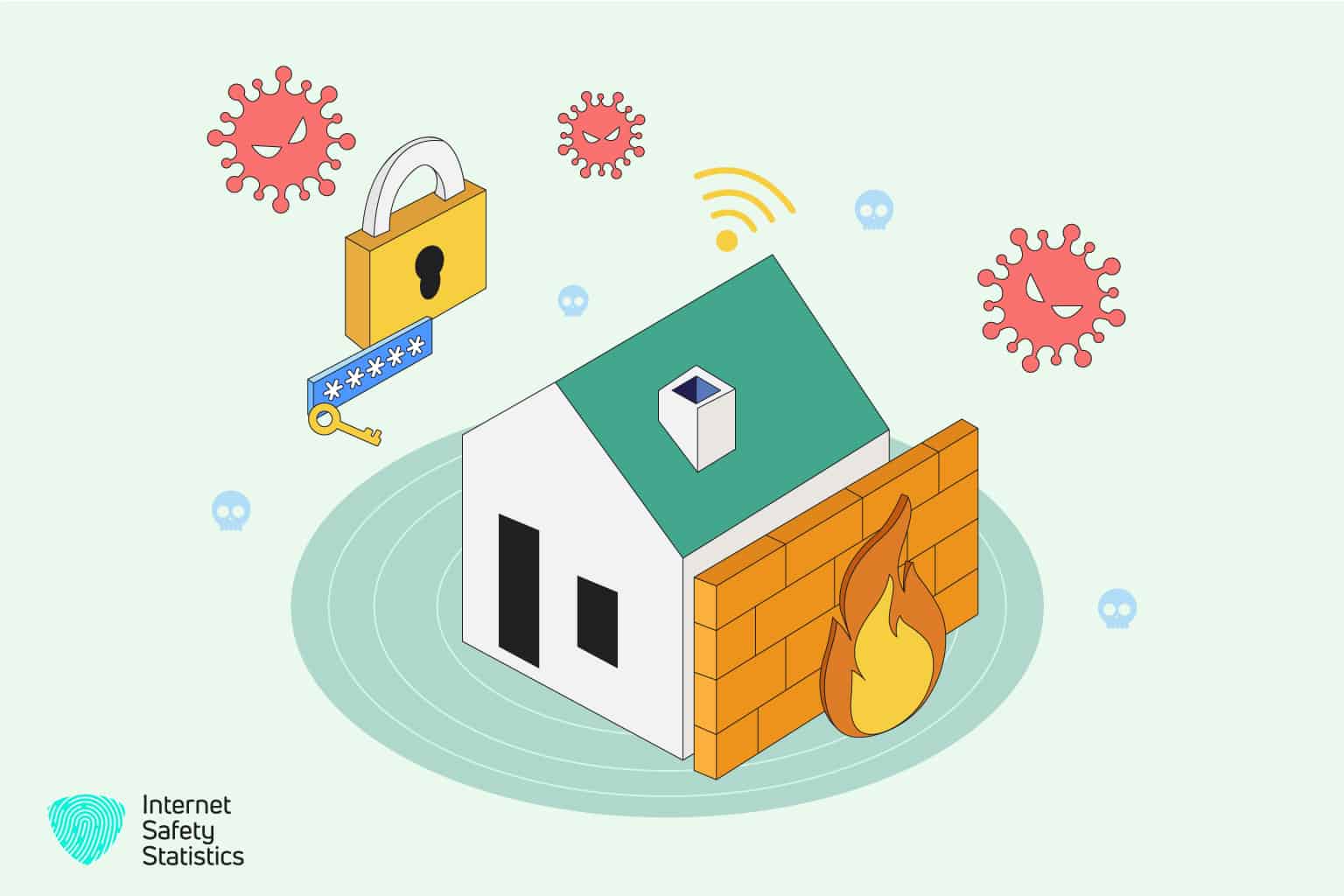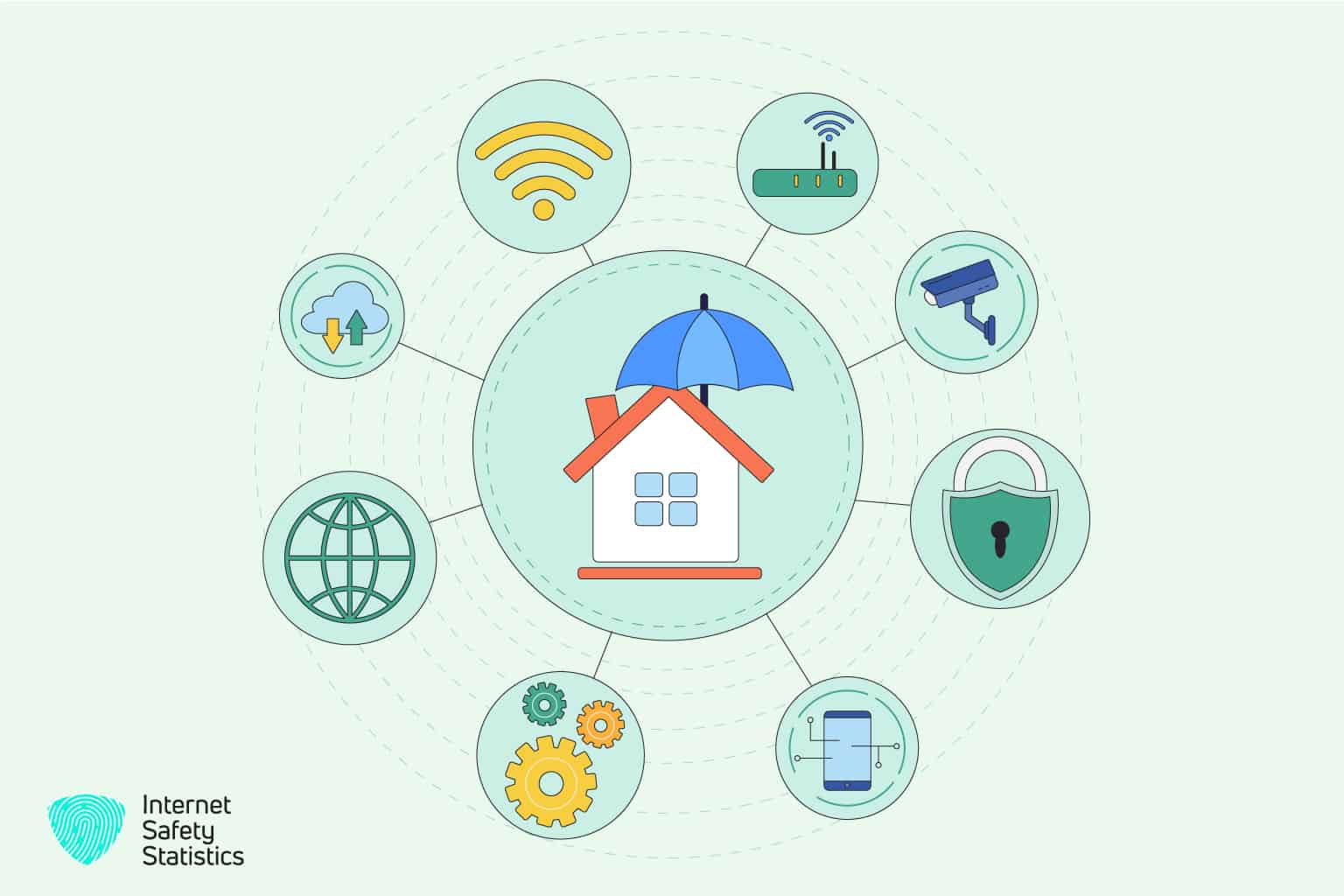
Many malicious programmes and hackers lurk online and aim to steal personal information or obtain access to your computer system. Like a security fence prevents attackers from entering your home, a firewall prevents them from accessing your home network.
To begin, let’s define “firewall” for those who may be unfamiliar with the word and discuss why it’s crucial to your network’s and data’s security.
What’s a Firewall? And How Does it Work?
A firewall is like a bouncer at a club; it monitors and controls who gets in and out based on a set of rules. To put it simply, a firewall’s role is to safeguard a computer network from unwelcome intruders such as viruses and malware.
Network and transport layers (Layers 3 and 4) of the OSI model, respectively, are where firewalls perform their filtering functions. They can be implemented as hardware devices, software programmes, or a mix of the two.
Firewalls may be broken down into two categories: packet-filtering and stateful. Firewalls that use packet filtering examine the source and destination IP addresses and ports before deciding whether or not to allow a packet through. On the other hand, stateful firewalls monitor network connections and permit or block traffic accordingly.
Why are Firewalls Important?

For optimal network security, firewalls must be implemented. Therefore, they should be an integral element of any home network security setup since they help in protecting systems from threats, including:
- Unauthorised access,
- Intrusions, such as denial-of-service attacks and malware attacks,
- Malicious attacks, such as phishing attacks and ransomware attacks.
During even the most basic online activity, information (which travels in “packets”) is sent back and forth between your device and remote servers and routers. A firewall, at the very least, examines the source and destination IP addresses on every packet and filters out those coming from or going to known harmful sources or destinations.
This is accomplished by verifying that the sent packets comply with specified criteria. Based on such rules, data packets are either let through or denied. Firewall protection is an integral part of the majority of modern operating systems. However, a third-party firewall solution usually provides more flexible control and more consistent outcomes. These can be purchased separately or as part of a bundled security package.
Firewall applications have a whole bag of tricks up their sleeve, including software that uses whitelisting to separate the wheat from the chaff when it comes to granting or denying internet access to different apps. For the majority of users, manually doing this would likely be a pain in the neck.
The Best Firewall Hardware for Your Home Network
When setting up a firewall for a home network, it’s important to consider both your needs and your budget. Some of the best firewall hardware for private networks are:
1. Ubiquiti Unifi Security Gateway (USG)
The USG is an advanced firewall with several useful features, such as deep packet inspection, intrusion detection and prevention, and virtual private network (VPN) compatibility. In addition to this, setting it up and controlling it is not too difficult.
This firewall is designed to deliver top-notch performance, guarantee reliability, and offer a better cost-efficient solution compared to other devices. The Ubiquiti Unifi Security Gateway is capable of managing high-speed Gigabit connections, which is a significant benefit.
2. Netgate pfSense SG-2100
The pfSense open-source firewall software is widely used because of its portability and flexibility. The SG-2100 was developed as a standalone hardware device for use with pfSense. It’s robust and full of useful extras, making it a viable choice for people that need extensive management of their network’s safety.
It’s perfect for home and remote worker networks, as well as small business installations that need higher processing power to handle VPN connections for numerous users and sites.
3. Bitdefender BOX
Bitdefender BOX is a hardware firewall that is specifically designed for home users. It efficiently detects and eliminates any potential malware, viruses, or other threats by thoroughly scanning all network traffic. It will block traffic and stop it from getting to your devices if it notices any suspicious activity.
Bitdefender BOX comes with a variety of security features that can help protect your device, including intrusion prevention, exploit prevention, and brute force protection. These features provide strong protection for your network against various types of attacks, such as malware, ransomware, and DDoS attacks. Setting up and using Bitdefender BOX is a breeze, and you can easily manage it from a mobile app or web dashboard.
4. Mikrotik hEX RB750Gr3
The Mikrotik hEX RB750Gr3 is an excellent choice for small businesses and home users, providing powerful and affordable firewall functions. It has a wide range of features, such as deep packet inspection, intrusion detection and prevention, and VPN support.

The Best Firewall Software for Your Home Network
Step one in finding the most suitable firewall for your home network is to determine your network’s size, budget, feature requirements, and level of technical expertise.
Firewall software is available at a wide range of prices, including free options and more expensive ones that can cost several hundred pounds. However, with a small home network, you have the opportunity to save money by not needing a commercial firewall. Using a free or open-source firewall can be a great solution!
Choosing software that is easy to use can make configuring a firewall a breeze, even if you don’t have prior experience. Firewall software provides a number of useful features, including intrusion prevention, application control, and VPN. You can easily find a firewall that has all the features you need by considering what you need. The following list might help you make your final decision:
5. FortiGate
The next-generation firewall (NGFW) FortiGate offers comprehensive protection for networks of any size. As the most widely used network firewall, it has many useful features, like:
- Application control
- Anti-virus and anti-malware protection
- Intrusion prevention and detection (IPS/IDS)
- Cloud connectivity
- Data loss prevention (DLP)
- Secure sockets layer (SSL) inspection
- Virtual private network (VPN)
- Web filtering
FortiGate provides a diverse array of security functionalities aimed at protecting your network against various types of security threats. The system shows high scalability and can be deployed across different settings. FortiGate is super easy to manage, and you can control everything from one place. Additionally, it is a financially efficient approach to network security.
6. Bitdefender Firewall
Bitdefender Firewall is a powerful and easy-to-use firewall software that features anti-virus, anti-malware, web filtering, and application control, among many others. It is compatible with the vast majority of operating systems, such as Windows, macOS, Android, and iOS. In addition to being feature-rich, it’s also quite user-friendly, making it a good option for both beginner and professional users.
It works by preventing unauthorised connection attempts, both on local networks and on the Internet. The system employs a predefined set of protocols to inspect inbound and outbound data, and it generates a protocol automatically each time an application attempts to establish an internet connection. It is also possible to manually include, remove, or modify application rules.
7. Comodo Firewall
Protect your computer from hackers and other unwanted malware with Comodo Firewall, a free and award-winning firewall software. The system employs diverse security features to ensure the safety of your computer, such as:
- The Default Deny Protection: this feature implements a security measure that restricts all inbound connections as a default action unless explicitly authorised. This helps to keep hackers out of your system.
- Intrusion Detection and Prevention: Comodo Firewall employs a range of advanced intrusion detection and prevention methods to safeguard your computer against both known and unknown threats.
- Comodo Firewall’s user-friendly interface makes it simple and straightforward to configure and use.
- Application Whitelisting is a security feature that enables the user to define a list of authorised applications that are permitted to access the Internet. That way, harmful software can’t send or receive data from the outside world.
- Firewall rules can be customised to permit or restrict particular connections. This allows you to modify your firewall’s settings.
8. GlassWire
GlassWire is a firewall that is perfect for monitoring and protecting your home network. It protects users’ online privacy, keeps tabs on their bandwidth use and remote servers, and more.
GlassWire’s firewall features let you manage which programmes may access the Internet. It is useful for blocking ads, stopping malware from contacting C&C servers, and protecting children from harmful content.
The network monitoring module provides graphs of previous and real-time network activity broken down by traffic type, application, and user location. By clicking the graph, administrators may get specifics about applications or network events like traffic spikes.
You can get GlassWire for both Windows and Android devices. It’s a freemium app, so the free version has the basics, while the subscription edition adds things like remote monitoring and customisable firewall settings.
9. Malwarebytes Firewall
Protect your PC from malicious malware and hackers with Malwarebytes Firewall. Simply put, any incoming or outgoing traffic that does not match your specified security criteria will be denied. The features of Malwarebytes Firewall include the following:
- Real-time protection: With Malwarebytes Firewall’s real-time security, harmful connections are blocked instantly. As a result, your computer will be protected from malware before you even realise it’s there.
- Customisable settings: you may adjust the firewall’s settings to meet your specific requirements. It allows you to pick and choose which connections to accept and which to reject.
- Easy to use: This firewall software is easy to set up and use. Get started right away and enjoy peace of mind knowing your device is secure.
Firewalls are a complex and sophisticated technology. They play a crucial role in ensuring the safety of a network. You can help keep your home network safe from a variety of dangers if you know how firewalls function and how to set them up properly.
